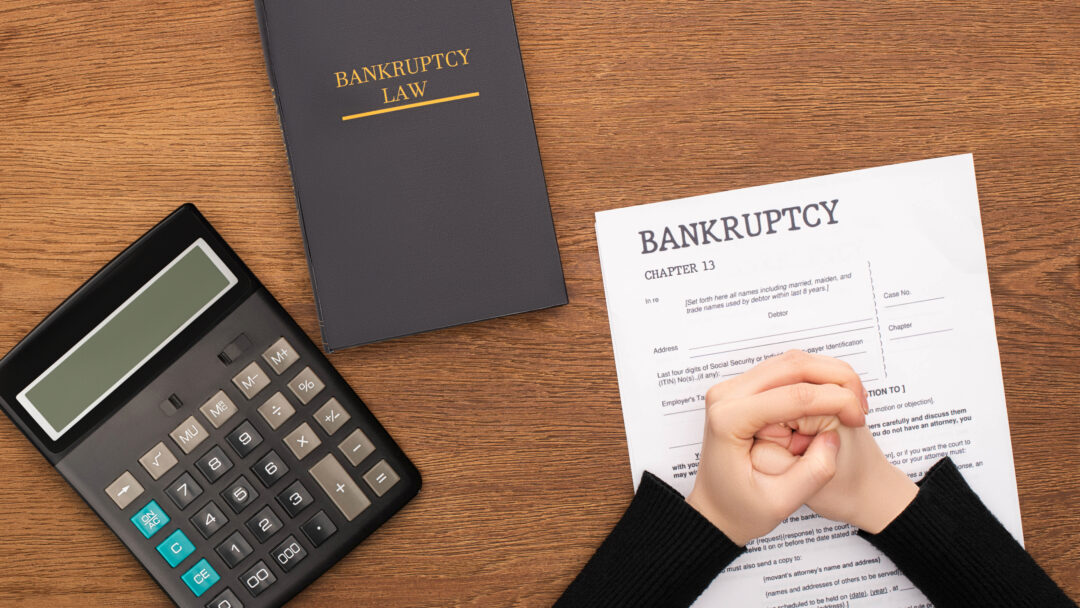Types of Debt Consolidation
If you choose to pursue debt consolidation, there are still decisions to make. There are many different forms of debt consolidation, each with pros and cons, and choosing the best one can be difficult.
Debt consolidation comes with many distinct benefits. It enables you to make a single monthly payment on your debt, ideally saving money in the short term and in the end. If you struggle to keep up with your debt payments and are looking for a way to get out of debt faster, then debt consolidation may be right for you.
However, even if you choose to pursue debt consolidation, there are still decisions to make. There are many different forms of debt consolidation, each with pros and cons, and choosing the best one can be difficult.
To make your decision easier, we’ve broken down four of the most popular forms of debt consolidation, apples-to-apples, so you can figure out what’s right for you. Whether you go with a debt consolidation loan, a balance transfer credit card, a debt management plan, or a debt settlement program, you can be confident that you’ve made the right decision for your needs.
Debt Consolidation Loans
Taking out a loan is the most common and most well-known form of debt consolidation. Essentially, you take out a loan equal to the total amount of your current debts. You use that loan to pay off all your debts at once and then focus on paying down the loan. Since loans tend to have much more forgiving interest rates than most other forms of debt, especially credit card debt, a consolidation loan can help you save a great deal of money over time.
However, not every type of debt consolidation loan is the same. Below, we explore three common loan types: personal loans, 401(k) loans, and home equity loans.
Personal Loans
A personal loan is your typical bank loan. It’s generally an unsecured loan, meaning you don’t have to put down any collateral, and it usually comes with a reasonable interest rate. These qualities make a personal loan an effective and lower-risk vehicle for consolidating debt.
However, the best personal loans are for borrowers with excellent credit. If you’ve been struggling with debt for a long time and your credit has suffered, you may not qualify for a decent interest rate. If your credit is exceptionally poor, you may not qualify for an unsecured loan at all.
401(k) Loans
While it’s possible to take a loan out against your 401(k) in order to consolidate your debts, it’s generally not your best option. There are some tempting pros in favor of 401(k) loans: the interest rates are low, the loan doesn’t count on your credit report, and you’re essentially borrowing money from yourself.
That said; borrowing from your 401(k) could significantly hamper your ability to save for retirement, as you’ll reduce both the balance of your 401(k) and the interest that compounds over time on that balance. Past that, there are significant taxes and penalties associated with early withdrawal from your 401(k). Finally, if you lose your job before you pay back the loan in full, you may have to pay it back in a period as short as 60 days, which can be difficult if not impossible.
Home Equity Loans
For homeowners, taking out a home equity loan (or a home equity line of credit) can be an attractive option for consolidating debt. If you’ve paid off a significant portion of your mortgage, you can borrow against that equity and consolidate your debt.
Borrowing against home equity can be a great option because it generally comes with lower interest rates than other types of loans. It also doesn’t require a credit check like a personal loan would.
Home equity loans come with their fair share of downsides, however. They can take an extremely long time to pay off, up to 10 years, and if you can’t keep up with the payments, you might lose your house. Still, if you’re a homeowner, borrowing against your home equity is worth looking into.
When a loan is the right choice for debt consolidation
Generally, if you have access to a decent loan, it’s a good choice for debt consolidation. Loans come with low-interest rates, reasonable payments, and often scale to fit the level of your debt. They’re a safe, responsible choice for the right borrower.
If you have poor credit and do not have a significant amount of home equity, however, then a loan may not be right for you. You won’t qualify for a loan with forgiving interest rates and may end up paying more in the end just to consolidate your debt.
Balance Transfer Credit Cards
For smaller amounts of debt, balance transfer credit cards can be ideal. With a balance transfer, you open up a new credit card with a promotional interest rate (ideally, 0% for a year or more). You transfer the balance of your other credit cards to this card and pay down the card aggressively before it starts to accrue interest.
This process essentially freezes interest on your debts. This means that every dollar you spend to payments actually goes toward paying down your balance, not just staving off interest. In this manner, you can pay down your debt much faster than you would be able to otherwise.
When a balance transfer credit card is the right choice for debt consolidation
Balance transfer credit cards work best for individuals with good credit and smaller amounts of debt. Good credit is necessary for obtaining a credit card with decent terms in the first place, but the limits on balance transfer cards only go so high.
In other words, if you struggle with large amounts of debt or your credit has taken a plunge over the years, then a balance transfer card probably isn’t right for you.
Debt Management
Debt management plans are not technically debt consolidation plans in the same way that personal loans or balance transfer credit cards are. Instead, a non-profit credit counselor usually administers a debt management plan in order to help you to get a handle on your finances and responsibly get out of debt.
First, you meet with the credit counselor to go over your finances comprehensively. Once the credit counselor knows enough, he or she might simply help you make a budget, or perhaps draw up a debt management plan for you.
Under the debt management plan, the counselor will negotiate with your creditors to lower your interest rates and get any fees or penalties waived. Over the course of the plan, you’ll make a single payment to the credit counselor, who’ll then disburse the funds to your various creditors, essentially consolidating your debt. By the end of the plan, you’ll have paid off your debt and gotten a better idea of how to manage your own finances.
When debt management is the right choice for debt consolidation
Debt management is a popular choice for many people because it’s accessible, educational, and understandable. Unlike personal loans or balance transfers, there’s no good credit requirement to speak to a credit counselor, and it doesn’t matter how much debt you have. Over the course of the plan, you’ll learn how to manage your finances more responsibly and plan for the future. Unlike other forms of debt consolidation, which can be confusing to keep track of, debt management is simple to follow. You pay a certain amount of money each month; by a particular date, you’ll have paid off your debt. It’s that simple.
Debt Settlement
Like debt management, debt settlement isn’t a traditional form of consolidation, but it achieves the same goals: getting you down to a single monthly payment and saving you money over time.
With debt settlement, you pay a single monthly payment into a savings account administered by a third-party company. At the same time, you cease making payments to your creditors. The debt settlement company should be able to insulate you from most of the harassment your creditors might direct toward you for non-payment.
Once a large enough sum has accrued in the savings account, the debt settlement company attempts to negotiate with your creditors. In return for forgiving your debts and waiving any fees and penalties on your account, the debt settlement company offers your creditors a large, lump sum payment on your debt. Creditors who are happy to receive any payment and are eager to settle your account often take the deal. In the ideal scenario, you get out of debt faster and for much less money than you would have otherwise.
When debt settlement is the right choice for debt consolidation
Think of debt settlement as “high risk, high reward.” Ceasing to pay your creditors puts your credit score at risk; over time, it will almost definitely suffer. In addition, there’s no guarantee that your creditors will agree to the terms of your negotiation, although they’re usually willing to work with you to come to some kind of resolution.
On the other hand, the outcomes for debt settlement can be impressive. You eliminate your debts in a shorter amount of time by paying only a fraction of what you owe. For this reason alone, many people struggling with debt choose debt settlement over other options. Their credit may already be poor and getting out of debt is worth the trade-off.
Whether you’re ready to choose a form of debt consolidation or you need further guidance, National Debt Relief is here to help. Contact us today and get the process started!

Something really exciting happens after people have their first phone call with us.
They start to feel the power of taking back control of their personal and professional life.
Pay off your credit card debt
- Receive A Free Savings Estimate Today
- See How Quickly You Can Be Debt Free
- No Fees Until Your Accounts Are Settled







